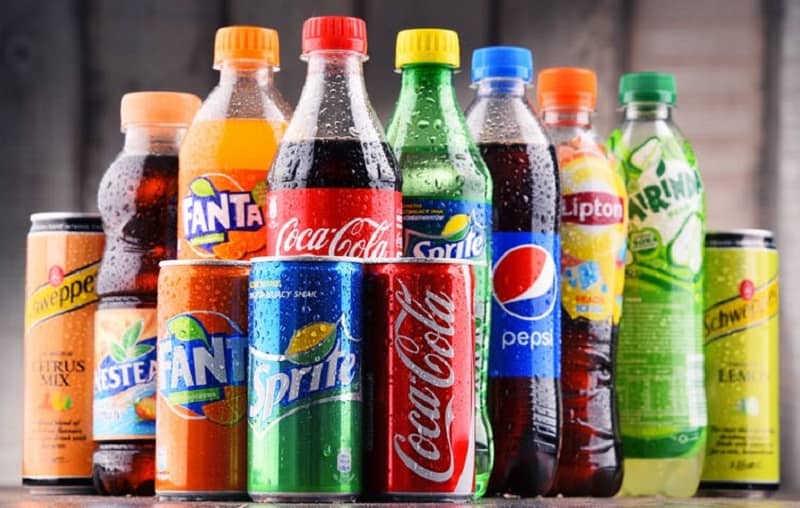As Nigeria grapples with the steady increase in Non-Communicable Diseases (NCDs), the role of sugary drinks as a contributing factor to this trend cannot be ignored. The Nigerian government’s implementation of a tax on Sugar-Sweetened Beverages (SSBs) in 2022 has sparked the debate on whether it should be sustained and if this is the right time for Nigerians to focus on health.
The rising consumption of sugar-sweetened non-alcoholic beverages in Nigeria, combined with the alarming rise in NCDs has had far-reaching social and economic consequences. The associated productivity loss, rising healthcare costs, and strains on individuals and their families are undeniable. Furthermore, SSBs have been identified as major risk factors for a variety of deadly diseases around the world. The World Health Organisation (WHO) has acknowledged these concerns, which are reflected in Nigeria’s National Multisectoral Action Plan (NMSAP) for NCD elimination, which is overseen by the Federal Ministry of Health’s NCD Division.
Mounting empirical evidence establishes a significant link between the consumption of SSBs and the risk of NCDs. SSBs can be found in various forms, including carbonated soft drinks, energy drinks, concentrates or syrups, sports drinks, pre-sweetened teas, and coffees, enhanced waters, milk-based drinks, and less than 100 per cent fruit or vegetable juices such as juice drinks or nectar. SSBs are readily available and highly consumed in Nigeria, particularly among children and adolescents.
According to the Centre for Disease Control and Prevention (CDC), consumption of SSBs is associated with weight gain, obesity, type 2 diabetes, heart disease, kidney diseases, non-alcoholic liver disease, tooth decay and cavities, and gout, a type of arthritis, among others.
Recent discussions questioned the timeliness of sustaining and increasing the SSB tax in Nigeria, considering the current economic situation in the country. It compels us to reflect on whether we should wait until the new generation begins regretting their unhealthy choices resulting from ignorance or societal misinformation. The WHO has recommended a reduction in the consumption of these beverages to counteract the projected 39% increase in overweight individuals by 2030.
The current tax of N10 per litre on these drinks, as outlined in the Nigeria Finance Act 2021, is insufficient to achieve the desired change, which is crucial for promoting public health. Therefore, it is essential to sustain and increase the tax to align with the recommended global practice of at least a 20% increase in the final retail price of sugary drinks.
It is important to bear in mind that the Finance Act undergoes annual review and updates, which means that the SSB tax is subject to consistent advocacy and engagement with policymakers to ensure its long-term effectiveness. We are left with no option but to advance the need for a sustainable pro-health legislation.
Critics have argued that the poverty level in the country makes this tax an additional burden on Nigerians, further impoverishing them. They also claim that the state of healthcare infrastructure in the country, such as inadequate facilities, insufficient healthcare personnel, and poor allocation of resources, should take precedence over the implementation or sustenance of the SSB tax. Proponents of this view believe the focus should be on addressing these factors to improve the availability and accessibility of quality healthcare services. But these suggestions beat about the bush. A specific problem requires a single bullet or multifaceted approach.
It is important to note that the SSB tax is a win-win situation for public health and the government. By increasing the cost of these drinks, they become less affordable for low-income earners who are most susceptible to the financial impact of NCDs like diabetes.
It is crucial to acknowledge that the inflation rate is rising and is projected to continue increasing, which will further increase the cost of healthcare services that are already burdensome for low-income earners. For instance, the minimum cost of managing diabetes is approximately N700,000 (Seven hundred thousand naira) per month in a country where state governments are still struggling to pay the minimum wage of N30,000.
To safeguard the health and well-being of Nigerians, the decision to sustain and increase the SSB tax must be immediate to unlock significant health benefits and generate vital revenue for essential health programs and services.
Urgent and decisive action from the government is imperative to curb SSB consumption, improve public health outcomes, and combat the growing prevalence of NCDs. Enacting pro-health tax legislation that is encompassing to include the SSB tax, without delay is of utmost importance. For a healthier citizenry today and in the future, starting early is key, as delay risks irreversible consequences.
Opeyemi Ibitoye works with Corporate Accountability and Public Participation Africa (CAPPA) and she writes from Abuja.

